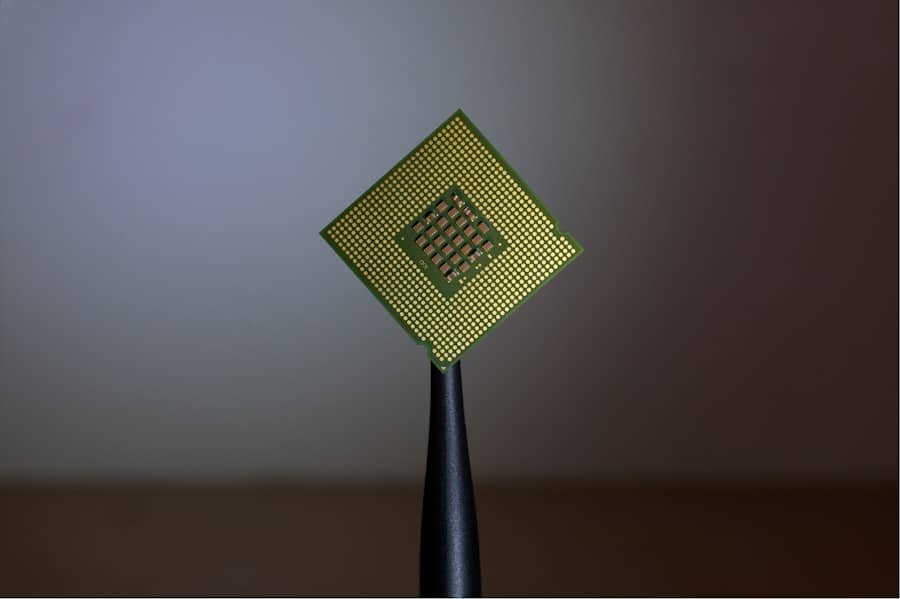The advent of quantum computing has ushered in a new era of computational capabilities, promising to solve complex problems that are currently intractable for classical computers. However, as the field progresses, there is an increasing awareness of the environmental implications associated with the energy consumption of these advanced technologies. Green quantum computing emerges as a critical area of research, focusing on developing quantum systems that not only enhance computational power but also minimize energy usage and environmental impact.
This dual focus on performance and sustainability is essential as the world grapples with the pressing challenges of climate change and resource depletion. Green quantum computing seeks to leverage the unique properties of quantum mechanics—such as superposition and entanglement—to create more efficient algorithms and hardware designs. By optimizing these systems for energy efficiency, researchers aim to reduce the carbon footprint associated with quantum computing operations.
This approach is not merely about making quantum computers greener; it is about rethinking how we design and implement computational systems in a world increasingly concerned with sustainability. As we delve deeper into this topic, it becomes evident that the intersection of quantum computing and environmental stewardship holds significant promise for the future of technology.
Key Takeaways
- Green quantum computing has the potential to revolutionize the way we process information and reduce energy consumption.
- Traditional computing methods have a significant environmental impact due to their high energy consumption and waste generation.
- Green quantum computing offers advantages such as faster processing speeds, lower energy requirements, and reduced environmental impact.
- Despite its potential, green quantum computing faces challenges and limitations such as technological barriers and high development costs.
- Current research and development in green quantum computing are focused on overcoming these challenges and implementing the technology in various industries to reduce energy consumption.
The Potential of Quantum Computing to Reduce Energy Consumption
Quantum computing has the potential to revolutionize various fields by solving problems exponentially faster than classical computers. This speed translates into reduced energy consumption for specific tasks, particularly those involving large datasets or complex simulations. For instance, quantum algorithms like Shor’s algorithm for factoring large integers or Grover’s algorithm for searching unsorted databases can perform these tasks with significantly fewer operations than their classical counterparts.
This efficiency not only accelerates computation but also reduces the energy required to complete these processes. Moreover, quantum computers can optimize resource-intensive tasks such as drug discovery, materials science, and logistics management. In drug discovery, for example, quantum simulations can model molecular interactions at an unprecedented scale and accuracy, potentially leading to faster development of new medications.
Traditional methods often require extensive computational resources and time, leading to high energy consumption. By utilizing quantum computing’s capabilities, researchers can streamline these processes, thereby conserving energy while achieving breakthroughs that would otherwise be impossible.
The Environmental Impact of Traditional Computing

The environmental impact of traditional computing is significant and multifaceted. Data centers, which house servers that process vast amounts of information, consume enormous quantities of electricity—often derived from fossil fuels. According to a report by the International Energy Agency (IEA), data centers accounted for about 1% of global electricity demand in 2020, a figure that is expected to rise as digital services proliferate.
Additionally, the production and disposal of electronic components contribute to environmental harm. The extraction of raw materials for semiconductors and other hardware often involves environmentally damaging mining practices.
Furthermore, electronic waste (e-waste) poses a significant challenge; improper disposal can lead to toxic substances leaching into soil and water systems. As traditional computing continues to expand without adequate measures for sustainability, the need for greener alternatives becomes increasingly urgent.
Advantages of Green Quantum Computing
Green quantum computing offers several advantages over traditional computing paradigms, particularly in terms of energy efficiency and sustainability. One of the most significant benefits is the potential for reduced energy consumption during computation. Quantum computers can perform complex calculations with fewer qubits than classical bits, leading to lower power requirements for specific tasks.
This efficiency is particularly crucial in applications such as optimization problems, where classical algorithms may require extensive resources. Another advantage lies in the ability of quantum systems to operate at lower temperatures compared to traditional computing systems. Many quantum computers utilize superconducting qubits that require cooling to near absolute zero temperatures.
While this cooling process does consume energy, advancements in cryogenic technology are making it increasingly efficient. As researchers develop more effective cooling methods and explore alternative qubit technologies—such as topological qubits—there is potential for further reductions in energy consumption associated with maintaining operational conditions.
Challenges and Limitations of Green Quantum Computing
Despite its promise, green quantum computing faces several challenges and limitations that must be addressed before it can be widely adopted. One significant hurdle is the current state of quantum hardware technology. Many existing quantum computers are still in their infancy, with issues related to qubit coherence times, error rates, and scalability hindering their practical application.
These technical challenges can lead to increased energy consumption during operation as systems require extensive error correction and stabilization processes.
While some algorithms have demonstrated potential for energy savings, many applications still rely on classical methods that may not be optimized for energy efficiency.
Bridging this gap requires interdisciplinary collaboration among computer scientists, physicists, and environmental experts to create algorithms that prioritize sustainability alongside performance.
Current Research and Development in Green Quantum Computing

Exploring Energy Efficiency
Initiatives are underway to explore various aspects of green quantum computing, including energy-efficient qubit designs, novel cooling techniques, and sustainable materials for hardware construction. For instance, researchers are investigating the use of photonic qubits that operate at room temperature, potentially reducing the energy costs associated with cooling.
Fostering Collaboration
Collaborations between universities and industry leaders are fostering innovation in this field. These partnerships are driving the development of quantum algorithms specifically designed for low-energy consumption, with researchers aiming to create benchmarks that measure both computational performance and environmental impact.
Establishing a Sustainability Framework
These efforts are crucial in establishing a framework for evaluating the sustainability of quantum computing technologies as they evolve.
Implementing Green Quantum Computing in Various Industries
The implementation of green quantum computing across various industries holds transformative potential. In finance, for example, quantum algorithms can optimize portfolio management and risk assessment while minimizing energy usage compared to traditional methods. Financial institutions are increasingly exploring how quantum computing can enhance their operations while adhering to sustainability goals.
In healthcare, green quantum computing can accelerate drug discovery processes by simulating molecular interactions more efficiently than classical approaches. Pharmaceutical companies are beginning to invest in quantum technologies that promise not only faster results but also reduced energy consumption throughout the research and development phases. Similarly, industries such as logistics and supply chain management stand to benefit from optimized routing algorithms that minimize fuel consumption and emissions.
The Future of Green Quantum Computing and its Impact on Energy Consumption
Looking ahead, the future of green quantum computing appears promising as technological advancements continue to unfold. As researchers refine quantum hardware and develop more efficient algorithms, the potential for significant reductions in energy consumption becomes increasingly tangible. The integration of green principles into quantum computing design will likely become a standard practice rather than an afterthought.
Furthermore, as global awareness of climate change intensifies, industries will be compelled to adopt sustainable practices across all facets of their operations—including computational processes. Green quantum computing could play a pivotal role in this transition by providing powerful tools that not only enhance productivity but also align with environmental goals. The convergence of cutting-edge technology and ecological responsibility may redefine how we approach computation in a world where sustainability is paramount.
In conclusion, green quantum computing represents a vital intersection between technological advancement and environmental stewardship. By harnessing the unique capabilities of quantum mechanics while prioritizing energy efficiency, researchers and industry leaders can pave the way for a more sustainable future in computing. As this field continues to evolve, it holds the promise of transforming not only how we compute but also how we address some of the most pressing challenges facing our planet today.
A related article discussing the best astrology software for PC and Mac in 2023 can be found at this link. While it may seem unrelated to quantum computing, both topics involve the use of advanced technology to enhance various aspects of our lives. Just as quantum computing has the potential to reduce energy consumption, astrology software can provide insights and guidance for individuals seeking to understand themselves and their place in the universe. Both articles highlight the ways in which technology can be harnessed to improve our understanding of the world around us.
FAQs
What is green quantum computing?
Green quantum computing refers to the development and use of quantum computing technologies that are designed to be more energy-efficient and environmentally friendly compared to traditional computing methods.
How could green quantum computing reduce energy consumption?
Green quantum computing could reduce energy consumption by utilizing quantum properties such as superposition and entanglement to perform computations more efficiently, thereby requiring less energy to power the computing process.
What are the potential environmental benefits of green quantum computing?
The potential environmental benefits of green quantum computing include reduced energy consumption, lower carbon emissions, and decreased reliance on energy-intensive computing infrastructure, which could contribute to overall sustainability efforts.
Are there any challenges or limitations to implementing green quantum computing?
Challenges and limitations to implementing green quantum computing include the current technical complexity and cost of quantum computing technologies, as well as the need for further research and development to optimize energy efficiency and scalability.
How does green quantum computing differ from traditional quantum computing?
Green quantum computing specifically focuses on the energy efficiency and environmental impact of quantum computing technologies, whereas traditional quantum computing may prioritize other aspects such as computational power and speed.

